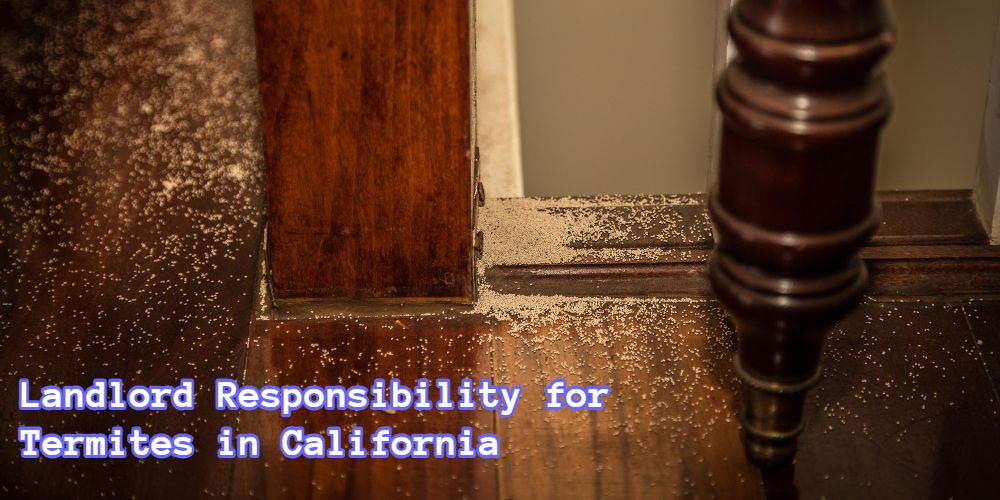Last Updated on March 18, 2024 by Kelvin Nielsen
Are you a landlord and wondering what the state’s landlord carpet replacement law says you should do? If so, here is everything you need to know in this regard!
As a landlord in California, you have certain responsibilities under the statewide landlord-tenant act (CA Civil Code 1940-1954.06). And among these is your responsibility to provide your tenant with a habitable home.
The following are answers to commonly asked questions regarding the landlord carpet replacement law in California.
Is there a carpet replacement law in California?
No! State law doesn’t require landlords to replace a carpet, unless its condition directly impacts the tenant’s health or safety. And this may be after the carpet has outlived its useful life, which is usually after 5-7 years.
As long as the carpet doesn’t have any holes in it or strong odors, it should be just fine. As a landlord, your core duty is to meet the state’s basic health and safety codes, not provide an aesthetically pleasing unit.
Related Post: Free Legal Advice for Tenants in California: Know Your Rights
How often should a landlord replace the carpet in California?
As already mentioned, there is no landlord carpet replacement law in California. As such, there is no law that specifically mandates landlords to replace the carpet after a specific period of time.
That being said, the general consensus is that the expected useful life of a carpet in a rental property is 7 years. In fact, the state department of Consumer Affairs recommends changing the carpeting after every 7 years.
Admittedly, though, the useful lifespan of a carpet will also vary based on a number of factors. Including, the carpet’s quality, the number of occupants in the home, and the maintenance it’s given.
Basically, this means that you may still need to replace the carpeting even before the 7-year mark.
The following are some things you may need to keep in mind when it comes to carpet replacement in California.
- You must ensure the carpet is clean before a new tenant moves in.
- You can hold the tenant liable for the cost of replacing the carpet if they make repairs exceeding normal wear and tear.
- You must repair the carpet whenever requested by the tenant to do so, especially if the damage impacts their habitability. If the tenant is responsible for the damage, you may be able to hold them liable for the repair costs.
What is the 80 carpet rule in California?
This is a requirement for tenants. The rule, not a law, requires tenants to cover at least 80% of the walkable areas with carpeting to help reduce noise levels.
The rules applies to all tenants, regardless of the type of residential property they are renting. It could be a single-family home, an apartment, or even a condominium.
If your lease includes the 80 carpet rule and the tenant fails to comply with it, you may be able to evict them if neighbors repeatedly complain of excessive noise.
The following are a few things to keep in mind when it comes to the 80/20 percent rule in California.
- The rule doesn’t apply to units that the landlord has already carpeted or to units that have a thick pad.
- If you don’t provide carpeting in your rental properties, consider including the 80 carpet rule in the lease.
- The rule doesn’t specify the kind of carpet the tenant must use.
Can a landlord charge for carpet cleaning in California?
Yes and No!
You can charge a tenant for carpet cleaning if they leave the carpet in a dire state of uncleanliness. For example, if the tenant spills large amounts of red wine on the carpet and cannot get clean. You may also be able to charge the tenant for the cost of cleaning the carpet when it has strong odors from pet urine or feces.
However, you may not be able to charge the tenant for routine carpet cleaning. This can either be during the rental term or after the tenant has vacated the unit. Routine carpet cleaning is part of normal wear and tear on a unit, and that is the landlord’s responsibility to fix.
Do tenants have to clean carpets when moving out in California?
Generally speaking, most leases require tenants to leave their rental unit in the same condition they found it in, less normal wear and tear. If the tenant damages it through serious stains from pets and spills, rips and tears, or cigarette burns, you may be able to make appropriate deductions from their security deposit after they move out.
You must not, however, make any deductions to their security deposit for damages arising from fading or wearing out due to sunlight exposure or normal, everyday use.
Conclusion
Whereas there is no landlord carpet replacement law in California, both landlords and tenants have certain responsibilities. As a landlord, you have a responsibility to provide a habitable property. (Here is a guide on uninhabitable living conditions in California).
Which, includes providing the tenant with a carpet that’s clean and in good condition. Please note, however, that you have no legal responsibility to provide the tenant with a carpet in the first place. It’s entirely up to you to choose whether or not to provide it. If you choose not to provide it, then make sure to include the 80-carpet rule in the lease.
As for your tenant, they have a duty to care for the carpet and not cause careless or negligent damage to it.
Disclosure: The content herein isn’t a substitute for advice from a professional attorney. It’s only meant to serve educational purposes. If you have a specific question, kindly seek expert attorney services.
Sources: https://law.justia.com/codes/california/2021/code-civ/division-3/part-4/title-5/chapter-2/section-1946-2/, https://leginfo.legislature.ca.gov/faces/codes_displayText.xhtml?lawCode=CIV&division=3.&title=5.&part=4.&chapter=2.&article, https://www.courts.ca.gov/documents/California-Tenants-Guide.pdf,

Hi, I’m Kelvin Nielsen, an experienced landlord and accomplished real estate lawyer. My focus is on answering your questions about renting in the hopes of making your life as a renter or a landlord a bit easier.







